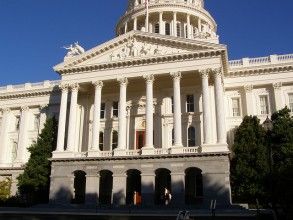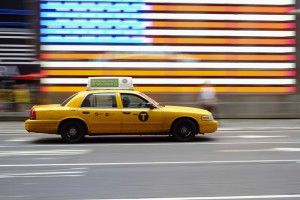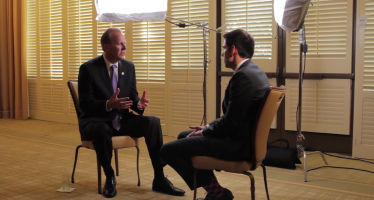Bill rewrites state travel policy to include sharing economy

Asm. Ling Ling Chang
Sacramento once again has its eye on the sharing economy.
This year, state lawmakers have targeted ride-sharing companies and short-term accommodation services for more regulations that, some fear, could kill the burgeoning industry. But, at least one state lawmaker has embraced the mantra: “sharing is caring.”
Republican Assemblywoman Ling Ling Chang of Diamond Bar has introduced legislation that would rewrite the state’s travel policy to guarantee state workers have the right to use sharing services while traveling on government business. That means on the next business trip to Los Angeles, a state worker could ditch the corporate hotel chain in favor of Airbnb, or upgrade the big yellow taxi for an Uber.
“The sharing economy is becoming a part of our everyday lives,” Chang told CalWatchdog.com. “I see it as a growing market in California that is creating jobs and making our lives better, which is a win-win.”
Chang added, “We should be embracing these new markets and one way to do that is to allow state workers to take advantage of their cost-saving benefits.”
Bill could saves taxpayers millions
Technically, there’s nothing in state law that prevents an agency or department from approving travel reimbursements for sharing services. Chang says that her measure is a pro-active effort to keep state policies current with new innovations in the marketplace.
“By allowing state employees to use the sharing economy, California is leading by example and embracing innovation,” Chang explained. “Too many times state bureaucracies punish these new entrepreneurs because they don’t understand them. If it doesn’t fit into the status-quo, 20th century regulatory scheme, there seems to be a desire to push them into that old system.”
 Last year, the University of California initially banned reimbursements for travel expenses incurred with sharing services. That led to a public outcry with some Democratic politicians calling for the UC system to modernize its travel policies.
Last year, the University of California initially banned reimbursements for travel expenses incurred with sharing services. That led to a public outcry with some Democratic politicians calling for the UC system to modernize its travel policies.
“Sharing economy companies offer consumers more choices at often less cost than comparable services offered by traditional vendors,” Lt. Governor Gavin Newsom, a member of the UC Board of Regents, wrote at the time. “Prohibiting U.C. employees from using services that cost less is simply bad for the university’s bottom line.”
Eventually, the UC system backed away from its ban. Chang’s bill encourages the UC system to follow the state’s lead in embracing sharing services.
Internet Association, Natural Resources Defense Council back bill
The $15 billion sharing industry is expected to grow to $335 billion over the next decade, in part, because it saves consumers money. Sharing services are commonly cheaper than traditional travel businesses. According a legislative analysis of the bill, home-sharing services can save consumers as much as 50 percent compared to conventional lodging options.
With more than 271,000 active state employees, a shift by state government to more sharing services could help save taxpayers money. Chang’s office says that state employees have been reimbursed approximately $110 million in travel-related expenses over the last three years.
The bill has picked up key support from the Internet Association & Natural Resources Defense Council, which believe it will help the environment and save taxpayers money.
“AB229 recognizes the value of the emerging sharing economy and how it could be used to reduce state costs relating to travel,” the Internet Association wrote in support of the bill. “Providing the ability for state employees to use sharing economy services and receive reimbursement would increase the number of safe and reliable options available to employees when they travel on state business.”
AB229 sailed passed the State Assembly on a 74-0 vote.
Sen. Ben Hueso attacks ride-sharing services
 But not everyone in Sacramento is ready to embrace the idea. The bill has run headlong into opposition from one state lawmaker that has consistently opposed the new sharing economy.
But not everyone in Sacramento is ready to embrace the idea. The bill has run headlong into opposition from one state lawmaker that has consistently opposed the new sharing economy.
“This industry, two years ago was operating illegally,” state Senator Ben Hueso, D-San Diego, said in reference to the ride-sharing industry during a committee hearing earlier this month. “This is a bill that is largely unnecessary, but it is setting a statement, saying, ‘The state of California is endorsing this mode of travel and encouraging this mode of travel over others.'”
Hueso, whose family is in the taxi cab business, has become the Legislature’s biggest critic of ride-sharing. Yet, even he could benefit from the new services. Last summer, Hueso was arrested for driving under the influence just hours after he voted for legislation that one ride-share executive feared “would literally spell the end of the ride-share industry.”
Related Articles
You and what army are going to make me pay?
Dec. 24, 2012 By Chris Reed The city of San Bernardino’s defiance of CalPERS’ demands for payment will be remembered
Vidak state Senate race could impact Dem supermajority
Central Valley Senate District 16 is a crucial one for Democrats in the Capitol. They need it to keep their
VIDEO: San Diego mayor discusses drought alleviation
San Diego Mayor Kevin Faulconer sits down with CalWatchdog.com Editor Brian Calle to discuss how San Diego is addressing the



